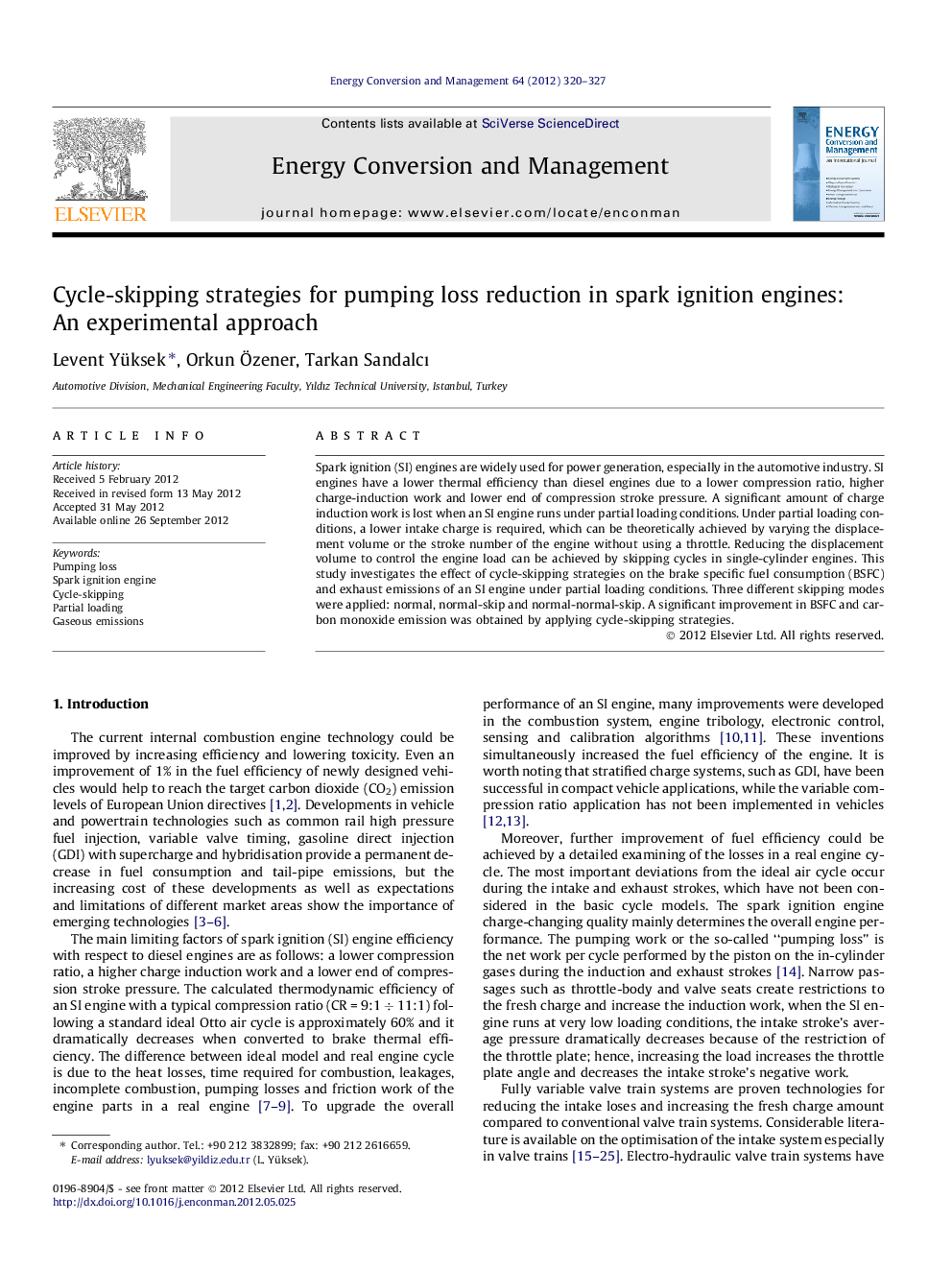| Article ID | Journal | Published Year | Pages | File Type |
|---|---|---|---|---|
| 761134 | Energy Conversion and Management | 2012 | 8 Pages |
Spark ignition (SI) engines are widely used for power generation, especially in the automotive industry. SI engines have a lower thermal efficiency than diesel engines due to a lower compression ratio, higher charge-induction work and lower end of compression stroke pressure. A significant amount of charge induction work is lost when an SI engine runs under partial loading conditions. Under partial loading conditions, a lower intake charge is required, which can be theoretically achieved by varying the displacement volume or the stroke number of the engine without using a throttle. Reducing the displacement volume to control the engine load can be achieved by skipping cycles in single-cylinder engines. This study investigates the effect of cycle-skipping strategies on the brake specific fuel consumption (BSFC) and exhaust emissions of an SI engine under partial loading conditions. Three different skipping modes were applied: normal, normal-skip and normal-normal-skip. A significant improvement in BSFC and carbon monoxide emission was obtained by applying cycle-skipping strategies.
► A cycle density variation technique called cycle-skipping was applied. ► Effect on fuel consumption and gaseous emissions was investigated. ► Fuel consumption and gaseous tail-pipe emissions improved at partial loading conditions.
